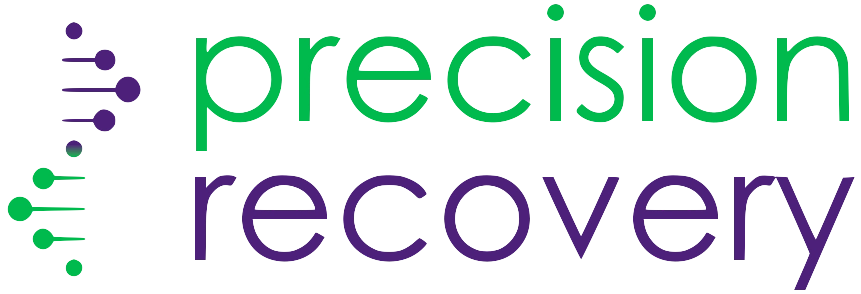Group Therapy as Part of Your Recovery Program
Recovery can feel isolating, but you don’t have to do it alone. Group therapy at Precision Recovery is a key part of our felony DWI recovery program, offering a safe space to connect with others who understand what it takes to rebuild after a DWI felony or multiple DWI charges. Led by experienced therapists, these sessions offer real support, shared experiences, and tools you can use every day to stay on track.
How We Approach Group Therapy
Each group session is guided by a licensed therapist who creates a safe, structured space for growth. While every session is different, our approach is grounded in proven strategies that support emotional awareness, accountability, and long-term recovery. We focus on real-life challenges and practical skills to help you stay on track—together.
How Group Therapy Works
Group therapy sessions bring together individuals in recovery to share, listen, and grow, guided by a licensed therapist in a safe, structured environment. These sessions offer support, accountability, and practical tools that help you stay committed to change. Group therapy works alongside individual therapy and medical care as part of your overall treatment plan.
- Small group setting led by a licensed therapist.
- Open discussions focused on real-life challenges and progress.
- Evidence-based exercises that build coping skills and emotional awareness.
- A supportive peer environment where everyone is working toward sobriety.
Therapeutic Approaches We Use in Group Therapy
Precision Recovery's group therapy sessions are grounded in evidence-based practices that encourage healing, connection, and accountability. These approaches are specifically chosen for their effectiveness in group settings, helping participants build skills together, share experiences, and support one another throughout recovery.
Cognitive Behavioral Therapy (CBT)
CBT in group therapy helps members identify negative thinking patterns and replace them with healthier ones.
Group members learn practical tools for managing cravings, anxiety, and emotional triggers in a supportive, structured environment.
Dialectical Behavior Therapy (DBT)
Group DBT sessions focus on teaching skills in emotional regulation, distress tolerance, mindfulness, and effective communication.
Participants practice these techniques together, helping one another apply them in real-life situations.
Motivational Interviewing (MI)
MI encourages participants to explore their motivations for change through open, guided conversations.
Hearing others’ reasons for recovery in a group setting can inspire insight and reinforce commitment to the process.
Solution-Focused Brief Therapy (SFBT)
This strength-based approach helps participants identify what's already working in their lives and build on those successes.
Group members support each other in setting goals and creating small, achievable steps forward.
Mindfulness-Based Stress Reduction (MBSR)
MBSR is taught in a group format and includes meditation, breathing exercises, and awareness practices.
These tools help reduce stress, promote emotional balance, and enhance self-awareness, all of which are critical to sustaining recovery.
Acceptance and Commitment Therapy (ACT)
ACT encourages group members to accept difficult emotions without judgment and take meaningful action aligned with their values.
The group setting adds encouragement and accountability, making personal growth a shared journey.
What to Expect in Group Therapy
If you’ve never participated in a group session, feeling unsure at first is normal. But most people find that group therapy quickly becomes one of the most helpful parts of their recovery. Each session follows a clear structure designed to keep things supportive, focused, and productive.
- Sessions last about 60–90 minutes and are held regularly as part of your recovery schedule.
- Each group has a consistent set of members to build trust and connection over time.
- Topics may include relapse prevention, managing triggers, relationships, or emotional regulation.
- You can share at your own pace—no pressure to speak before you're ready.
- Confidentiality is respected so that everyone can feel safe opening up.
Who Group Therapy Supports
Group therapy is one component of Precision Recovery’s comprehensive treatment program. It’s designed to work alongside individual therapy, case management, and medical care to support long-term recovery. These sessions provide community, structure, and accountability—key elements for anyone committed to change.
- Clients participating in our Intensive Outpatient or Partial Hospitalization programs.
- Individuals navigating the emotional impact of a felony DWI charge.
- People who benefit from hearing others’ stories and sharing their own.
- Those rebuilding their lives and relationships after addiction.
- Anyone who wants to feel less alone while doing the hard work of recovery.
- Individuals using group therapy to demonstrate commitment during felony DWI legal proceedings.
Benefits of Group Therapy
Group therapy offers more than conversation—it’s a powerful tool for growth, healing, and connection. As part of your recovery program, it helps you build the skills and support system you need to stay sober and move forward.
- You realize you’re not alone – Hearing others’ stories helps reduce shame and isolation.
- You gain new perspectives – Group members offer insights that can shift how you view your own challenges.
- You build real accountability – Showing up for the group helps you stay committed to your recovery.
- You strengthen communication skills – Learn to express yourself more clearly and listen with empathy.
- You celebrate progress together – Wins, big or small, are acknowledged and encouraged by people who understand the journey.
- You meet legal recovery requirements – Participation can support your progress in court and life.
Frequently Asked Questions About Group Therapy





About Precision Recovery
Precision Recovery is a long-term outpatient program designed to help individuals facing felony DWI charges avoid incarceration, protect their careers, and achieve lasting sobriety.
If you’re ready to take the first step toward a better future, Precision Recovery is here to guide you every step of the way.

Start Building Real Support in Recovery
Group therapy is a critical part of your felony DWI recovery plan at Precision Recovery. It’s where legal accountability meets real support, helping you build lasting change with people who understand what it takes. Ready to take the next step?
Schedule an Evaluation